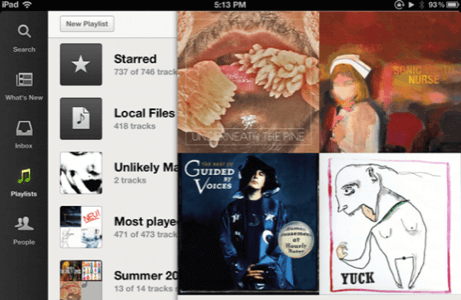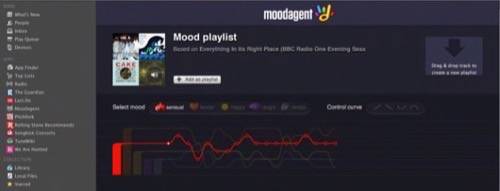
Spotify is raking in the money. The six-year-old streaming music startup has only been live in the U.S. for about a year, but it has apparently won the confidence of investors, who are said to be ploughing hundreds of millions of dollars into the company. So what will Spotify do with all that money?
They won’t say, but it’s safe to assume that content licensing, app development and hiring are high on the list. Here are a few of our unsolicited recommendations.
1. Expand the Music Catalog
Spotify already has a massive selection of music, but to stay competitive with the likes of Rdio and the cloud music lockers, it’s going to need to continue to grow that library. This is one of the more expensive things a company like this has to deal with, so it’s probably one of the first places that money is going to end up.
2. Increase Royalty Payments For Independent Artists
It’s still very much a growing company, but Spotify should consider increasing the royalty checks it sends to indie artists. That may not help the bottom line in the short term, but to remain viable, the service is going to need to retain those artists. Some of them are already uneasy about the meager payouts they’ve seen to date, and even an incremental boost in revenue would be a good way to restore their confidence.

3. Redesigned Apps For Every Platform
This may well be something that’s already underway, but a good way to mark the one-year anniversary of Spotify’s U.S. launch would be with a fleet of shiny, newly-redesigned apps across all platforms. The UI of their desktop app, for instance, is functional and looks fine, but it’s not the most jaw-droppingly beautiful interface we’ve ever seen. The same is true of the iPhone app.
The standard set by the company’s brand new iPad app is a pretty good one. There’s no reason the desktop experience shouldn’t be every bit as nice, and then some. The model could be shrunk down to fit on smartphones, and some lessons can be drawn from the design of Rdio’s iPhone app.
It might be a longshot, but a Web app would be nice too. Unlike Rdio and MOG, Spotify doesn’t exist as in-browser experience. Since Spotify uses P2P architecture, there are legitimate technical issues on the backend that might prevent Spotify from doing this, or at least make it very challenging.
4. More Native Social Features
Spotify’s integration with Facebook is nice, and it has certainly helped the company grow its user base. The social experience of using Spotify shouldn’t stop there, though. Twitter and Facebook could both be baked even more thoroughly into the service, and users should be able to interact with one another from within the app itself through basic features like comments, likes and private messages.

5. Grow the Third Party App Platform
One of the best things Spotify has done in the last year is launch its own app store for third party developers. Right now, the selection is still fairly limited, but the potential there is huge. Apps like Last.fm, Pitchfork, Matador Records, Rolling Stone and We Are Hunted are great for discovering new music. Mood Agent, TuneWiki and Soundrop are all innovative apps that layer in a new element to listening to music.
The innovation could go even further on this platform and the apps would be even more useful in a mobile context. To date, they only exist on the desktop.

















